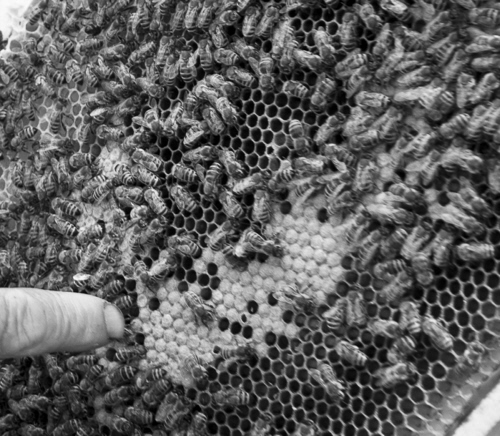Ionu’ is an elderly man who lives in the village of Breb, one of the most picturesque villages in all of Maramures. The village lies at the foothills of the Gutai mountains, and it is quite an isolated village with a population in excess of 2000 inhabitants. The name of the village comes from the beavers which used to live in the lakes and rivers in this area in the past, but now they are extinct. Breb is also known for sulphurous water, and until 1918 you could still see the old baths where it is said that even Emperor Iosif II used to come. It is said that the water is good for stomach diseases.
Ionu’ has 50 beehives, which he only keeps in his own garden and orchard. He inherited his first beehives from his father-in-law and then he gradually started to learn more about how to keep bees. Ion told my guide that up to 1950 on the Day of the Cross (Ziua Crucii, an Orthodox celebration on 14 September) the people in the village who had beehives would kill the bees in order to take the honey. They didn’t know what to do with the bees in winter. Then, an Orthodox priest called Mircea Antal came to the village and taught them how to take care of the bees and how to make beehives. From this time onwards, Ionu’ learned how to keep bees properly.
He is very proud of his honey, and he told my guide that his honey is natural because he doesn’t use any pesticides nor do the other villagers. He sells his honey in the village of Breb and in neighbouring villages.
Entering his garden, we could see some of his beehives, hay ready to be dried, lots of fruit trees and a big, cylinder-shaped structure of firewood. He willingly opened some of his beehives without using any kind of protection. In order to make the bees more quiet, he blew smoke on them, but this seems to be common among many, if not all, beekeepers.
At the end of the visit Ion said that he comes from a very old family of nobles, called ‘nemesi’, and he has an old diploma to prove it. He said that he didn’t want to give it to a museum, he just wants to keep it in the family. He was also very proud of his nephews, both of them officers in the Romanian Army. They use to come quite often to help him doing the haymaking for the animals.

